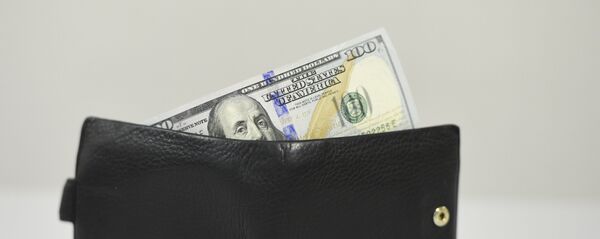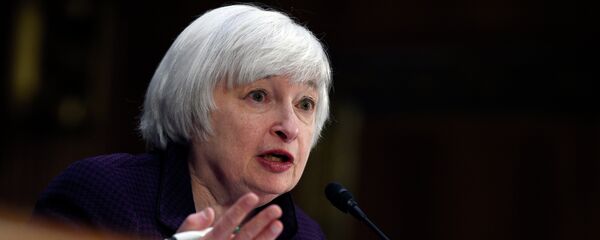Kristian Rouz – The US dollar fell to a two-and-a-half-year low amidst the lowered expectations of a Federal Reserve’s interest rate hike coming soon. In addition, the upcoming European Central Bank (ECB) meeting has shifted investor focus to the euro, which is poised to strengthen as policy tightening is expected to kick off in the Eurozone.
However, US foreign trade is projected to benefit from these latest developments, as a weaker dollar is poised to drive US exports and dampen the demand for imports in consumer goods. The declining availability of credit in the US market is also taking its toll on the demand for imports.
“What everybody is trying to do is price out any potential Fed hike for the remainder of this year,” Dean Popplewell of Toronto-based Oanda Corporation said.
The still-weak inflation bothers US policymakers, however, the additional budget spending, including on the border wall and hurricane relief, might drive consumer prices, whilst the dollar’s gradual slide is driving the gains in import prices.
“You have to wonder, with the degree of disruption to the flow of economic data that these storms will bring, how confident the Fed will be in making policy decisions,” Derek Halpenny of Mitsubishi UFJ Financial Group said.
Previously, most market observers were expecting a Fed rate hike in December, however, after President Trump reached an agreement to postpone the debt ceiling debate till that month amidst the hurricane troubles, the chances of a major monetary policy move have dropped. The central bank will hardly be willing to move rates amidst the debt ceiling debate in the Congress.
Currently, the dollar index that measures the greenback’s value against its six major peers is at its lowest since January 2015 at 91.011, dropping 1.6 percent for the outgoing week.
Nonetheless, there also structural reasons behind the dollar’s slide. Whilst the recent developments suppressed the greenback’s FX rate, leaving the door open for a rebound, the longer-term perspective on the dollar is bearish, partially because the Trump administration is focusing on eliminating the US foreign trade deficit.
“Americans are hugely underweight in their investment allocations to the rest of the world… the past few years Americans have liquidated close to the entirety of their foreign fixed-income portfolio and are likely in the process of re-allocating back to the rest of the world,” George Saravelos of Deutsche Bank said.
There is also an ongoing reshuffle in US financial governance, with the Congress having approved President Trump’s nominees for the Fed vice-president and Comptroller of the Currency. Thus far, the market participants are uncertain of how these shifts will impact the monetary policy path, and the wait-and-see stance is not encouraging dollar bulls.







